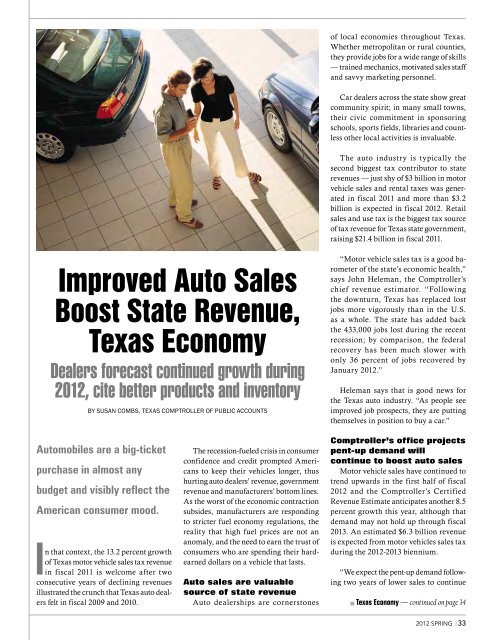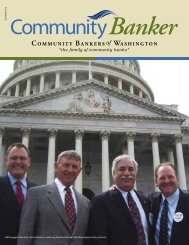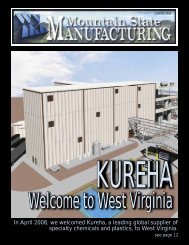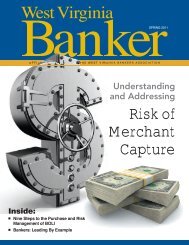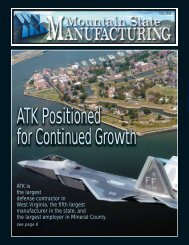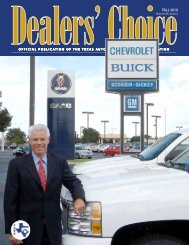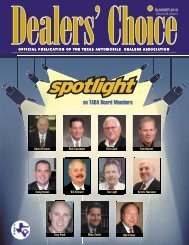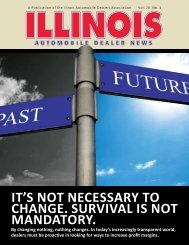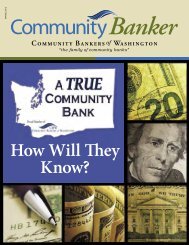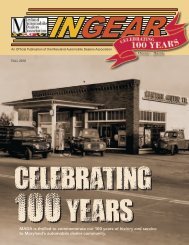Stacey Gillman Wimbish Stacey Gillman Wimbish - Media ...
Stacey Gillman Wimbish Stacey Gillman Wimbish - Media ...
Stacey Gillman Wimbish Stacey Gillman Wimbish - Media ...
- No tags were found...
You also want an ePaper? Increase the reach of your titles
YUMPU automatically turns print PDFs into web optimized ePapers that Google loves.
of local economies throughout Texas.Whether metropolitan or rural counties,they provide jobs for a wide range of skills— trained mechanics, motivated sales staffand savvy marketing personnel.Car dealers across the state show greatcommunity spirit; in many small towns,their civic commitment in sponsoringschools, sports fields, libraries and countlessother local activities is invaluable.The auto industry is typically thesecond biggest tax contributor to staterevenues — just shy of $3 billion in motorvehicle sales and rental taxes was generatedin fiscal 2011 and more than $3.2billion is expected in fiscal 2012. Retailsales and use tax is the biggest tax sourceof tax revenue for Texas state government,raising $21.4 billion in fiscal 2011.Improved Auto SalesBoost State Revenue,Texas EconomyDealers forecast continued growth during2012, cite better products and inventoryBY SUSAN COMBS, TEXAS COMPTROLLER OF PUBLIC ACCOUNTS“Motor vehicle sales tax is a good barometerof the state’s economic health,”says John Heleman, the Comptroller’schief revenue estimator. “Followingthe downturn, Texas has replaced lostjobs more vigorously than in the U.S.as a whole. The state has added backthe 433,000 jobs lost during the recentrecession; by comparison, the federalrecovery has been much slower withonly 36 percent of jobs recovered byJanuary 2012.”Heleman says that is good news forthe Texas auto industry. “As people seeimproved job prospects, they are puttingthemselves in position to buy a car.”Automobiles are a big-ticketpurchase in almost anybudget and visibly reflect theAmerican consumer mood.In that context, the 13.2 percent growthof Texas motor vehicle sales tax revenuein fiscal 2011 is welcome after twoconsecutive years of declining revenuesillustrated the crunch that Texas auto dealersfelt in fiscal 2009 and 2010.The recession-fueled crisis in consumerconfidence and credit prompted Americansto keep their vehicles longer, thushurting auto dealers’ revenue, governmentrevenue and manufacturers’ bottom lines.As the worst of the economic contractionsubsides, manufacturers are respondingto stricter fuel economy regulations, thereality that high fuel prices are not ananomaly, and the need to earn the trust ofconsumers who are spending their hardearneddollars on a vehicle that lasts.Auto sales are valuablesource of state revenueAuto dealerships are cornerstonesComptroller’s office projectspent-up demand willcontinue to boost auto salesMotor vehicle sales have continued totrend upwards in the first half of fiscal2012 and the Comptroller’s CertifiedRevenue Estimate anticipates another 8.5percent growth this year, although thatdemand may not hold up through fiscal2013. An estimated $6.3 billion revenueis expected from motor vehicles sales taxduring the 2012-2013 biennium.“We expect the pent-up demand followingtwo years of lower sales to continue Texas Economy — continued on page 342012 SPRING 33


